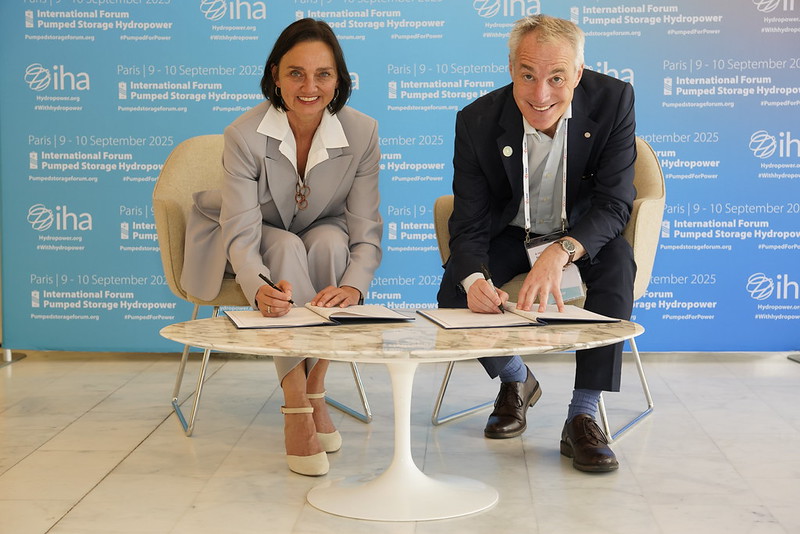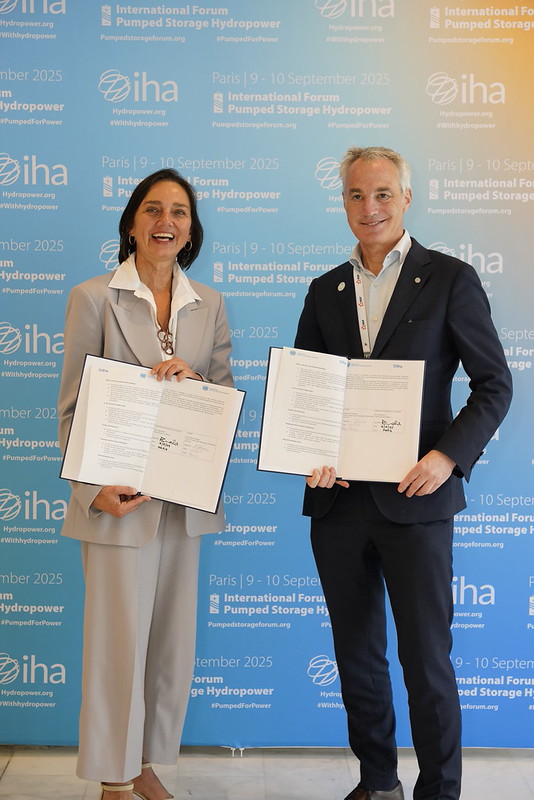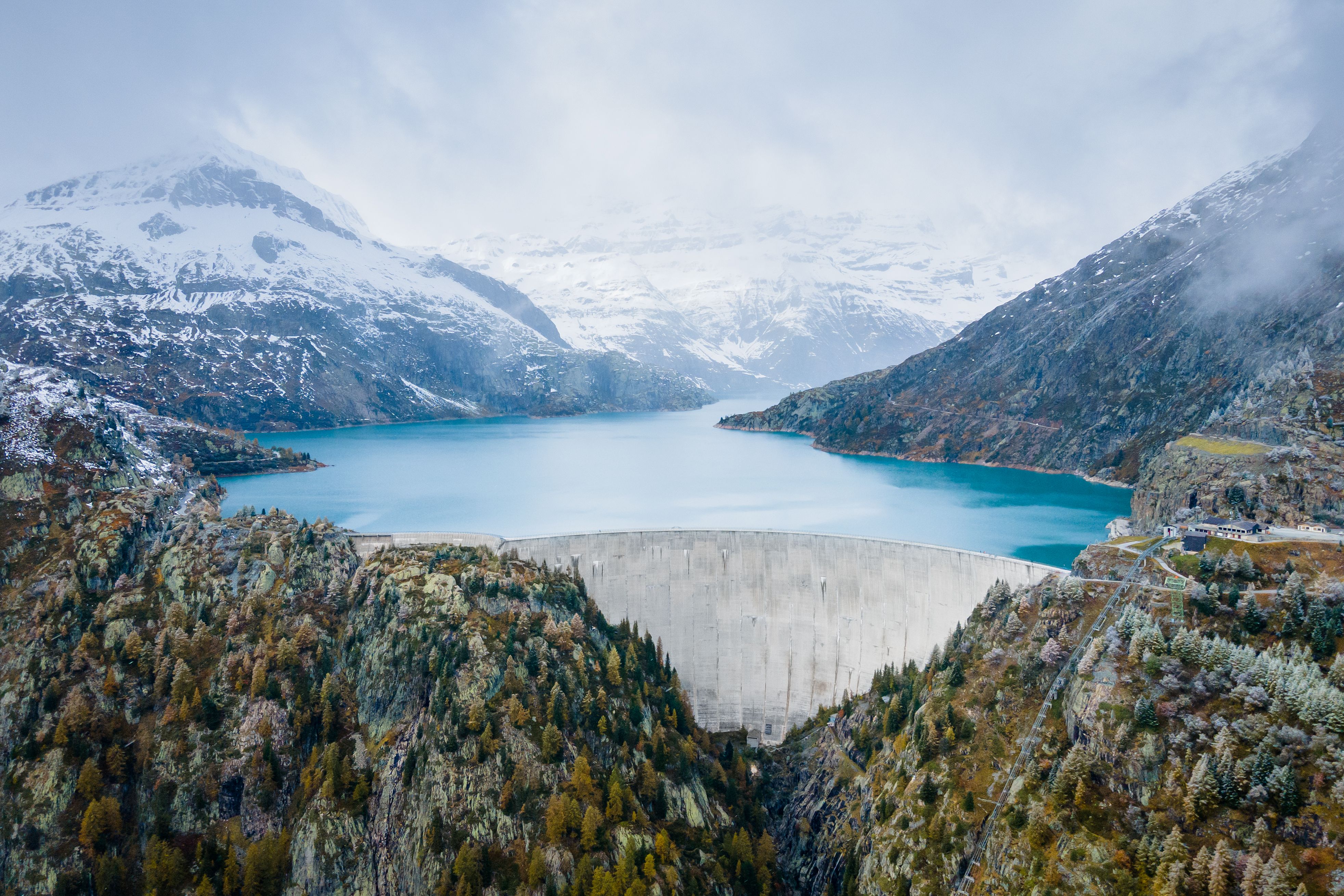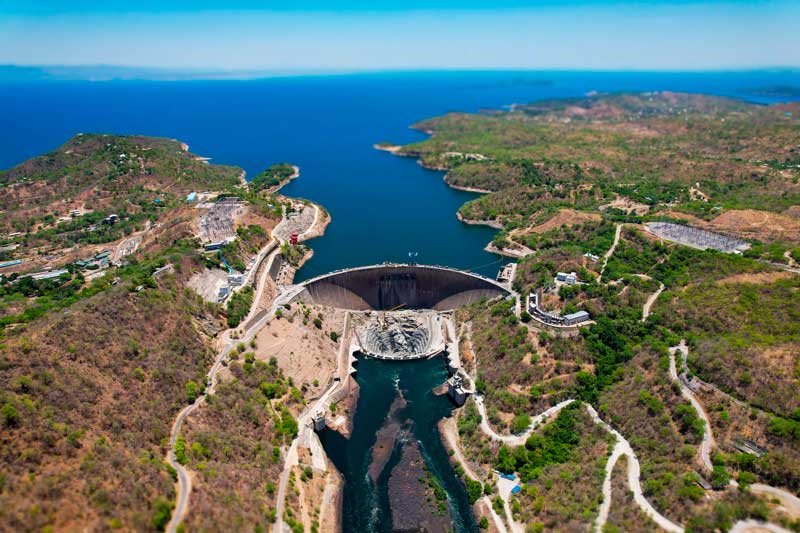Accelerating small hydropower solutions with UNIDO and IHA
Petra Schwager, Chief of Climate and Technology Partnerships (CTP) Division at UNIDO, reflects on the MoU signing with the IHA in September at the International Forum on Pumped Storage Hydropower in Paris.

Q1: The United Nations Industrial Development Organization (UNIDO) has just signed a Joint Declaration with International Hydropower Association (IHA). What is the motivation/value behind this cooperation?
This partnership reflects our strong commitment to joint action that benefits developing and transition economies. UNIDO brings its mandate to promote inclusive and sustainable industrial development with hydropower as an integral part of a broader strategy for a clean energy future. IHA contributes decades of experience and a global network in hydropower. Together, we aim to accelerate the deployment of small hydropower and pumped storage as critical solutions for energy access, energy security and climate resilience. This cooperation also embraces a Water – Energy – Food -Climate Nexus perspective, ensuring that hydropower development brings benefits across sectors, supporting water management, agricultural productivity, and sustainable industrial growth. In doing so, we contribute to inclusive development, climate change mitigation and poverty reduction, shaping the sustainable future. Our cooperation also sends a clear signal to governments, financial institutions and the private sector that coordinated action on hydropower is both needed and possible.
Q2: How will this partnership shape the future?
Our partnership will help shape the future by building knowledge, supporting project pipelines and mobilising finance for hydropower. Together, we will advocate for hydropower in international forums, ensure that it is recognised as an enabler of the Sustainable Development Goals and provide countries with the tools they need to plan and implement projects. These tools will increasingly integrate Nexus thinking: linking energy generation with agriculture, water use and productive sectors to maximise sustainability and resilience. Most importantly, we want to position hydropower as a modern, climate-smart technology that complements solar, wind and other renewables.
Q3: Why is this partnership important now?
The world is at a turning point in the energy transition. While renewables are expanding rapidly, we need flexible, reliable and sustainable solutions to balance power grids and ensure universal energy access. Hydropower, especially small hydropower and pumped storage, plays a unique role here. By applying a Nexus approach, we recognise the interlinkages between water, energy and food security, helping countries design solutions that deliver multiple co-benefits for communities and ecosystems.
Climate change is intensifying water stress and natural hazards. By combining our strengths and experiences now, UNIDO and IHA can help countries design resilient projects and scale up investment at exactly the moment when it is most needed.

Q4: What role does small hydropower play in the energy transition?
Small hydropower is a cornerstone of the energy transition, particularly in developing countries. It provides clean, reliable electricity for communities and industries, supports local businesses and agriculture, and strengthens resilience by securing water for irrigation and drinking. It also empowers small and medium-sized enterprises, creates jobs and provides opportunities for women and youth. From a Nexus perspective, small hydropower enhances local water and food systems by enabling irrigation, agro-processing, and other productive uses that strengthen rural economies. In many regions, small hydropower is the most cost-effective way to extend energy access while also supporting climate adaptation.
Q5: How will this partnership translate into real impact on the ground?
The impact will come through concrete actions. Together, we are working to support countries in preparing bankable projects, delivering training and capacity-building programs, and promoting the adoption of technical standards and sustainable practices. We are also committed to unlocking financing for projects that integrate energy with water, food, and productive uses. This Nexus approach ensures that hydropower investments contribute simultaneously to energy access, water security and agricultural development, amplifying long-term climate resilience. By matching global knowledge and networks with local needs, we are confident this partnership will create real benefits for people, businesses and ecosystems.









